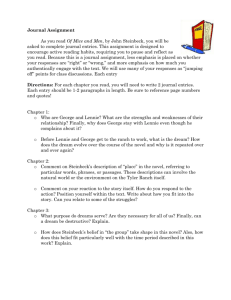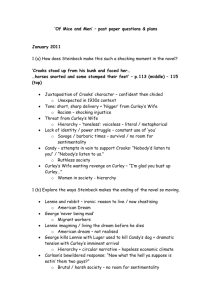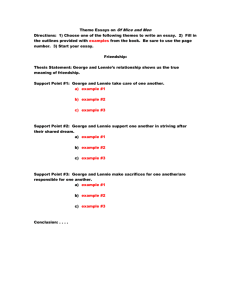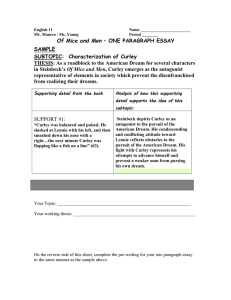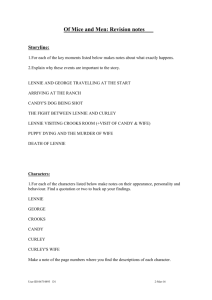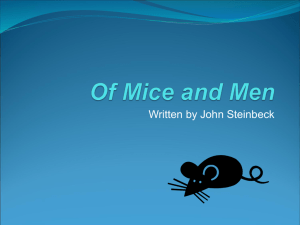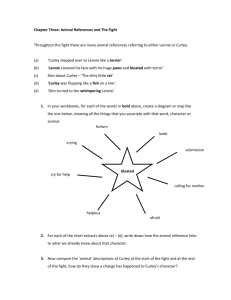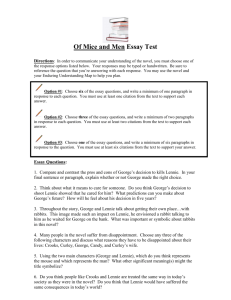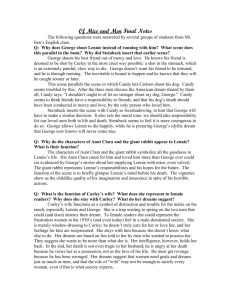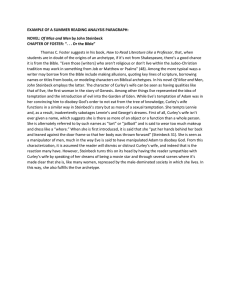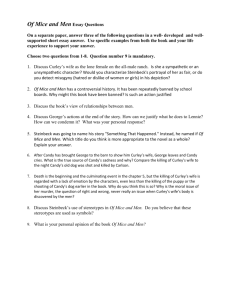Prep
advertisement
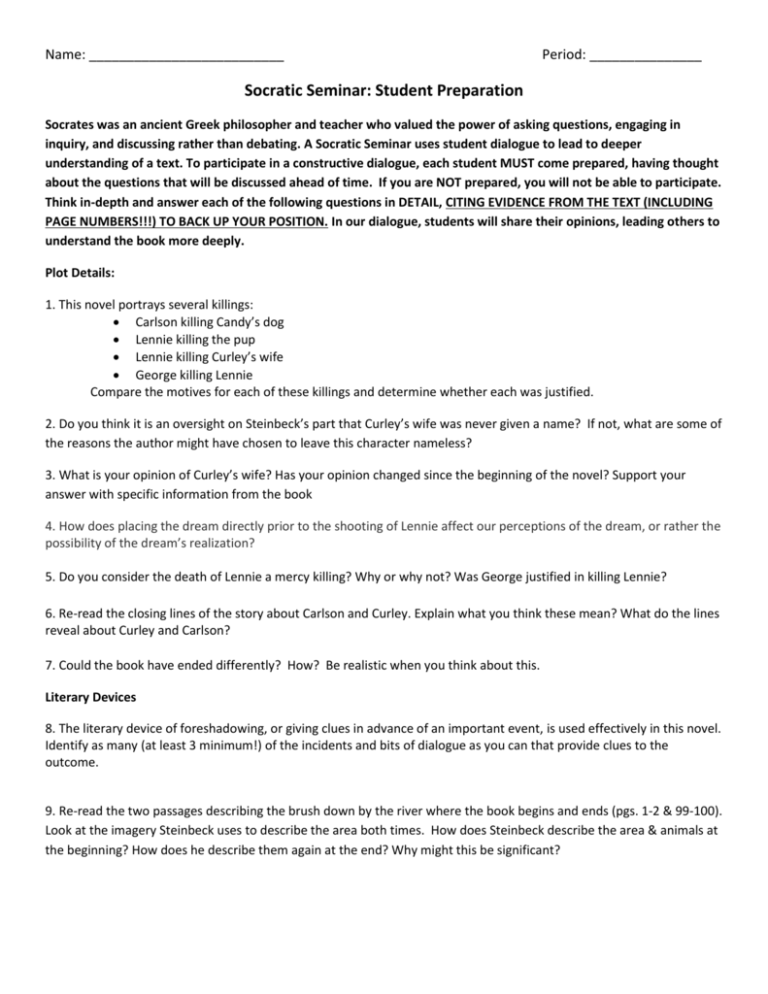
Name: __________________________ Period: _______________ Socratic Seminar: Student Preparation Socrates was an ancient Greek philosopher and teacher who valued the power of asking questions, engaging in inquiry, and discussing rather than debating. A Socratic Seminar uses student dialogue to lead to deeper understanding of a text. To participate in a constructive dialogue, each student MUST come prepared, having thought about the questions that will be discussed ahead of time. If you are NOT prepared, you will not be able to participate. Think in-depth and answer each of the following questions in DETAIL, CITING EVIDENCE FROM THE TEXT (INCLUDING PAGE NUMBERS!!!) TO BACK UP YOUR POSITION. In our dialogue, students will share their opinions, leading others to understand the book more deeply. Plot Details: 1. This novel portrays several killings: Carlson killing Candy’s dog Lennie killing the pup Lennie killing Curley’s wife George killing Lennie Compare the motives for each of these killings and determine whether each was justified. 2. Do you think it is an oversight on Steinbeck’s part that Curley’s wife was never given a name? If not, what are some of the reasons the author might have chosen to leave this character nameless? 3. What is your opinion of Curley’s wife? Has your opinion changed since the beginning of the novel? Support your answer with specific information from the book 4. How does placing the dream directly prior to the shooting of Lennie affect our perceptions of the dream, or rather the possibility of the dream’s realization? 5. Do you consider the death of Lennie a mercy killing? Why or why not? Was George justified in killing Lennie? 6. Re-read the closing lines of the story about Carlson and Curley. Explain what you think these mean? What do the lines reveal about Curley and Carlson? 7. Could the book have ended differently? How? Be realistic when you think about this. Literary Devices 8. The literary device of foreshadowing, or giving clues in advance of an important event, is used effectively in this novel. Identify as many (at least 3 minimum!) of the incidents and bits of dialogue as you can that provide clues to the outcome. 9. Re-read the two passages describing the brush down by the river where the book begins and ends (pgs. 1-2 & 99-100). Look at the imagery Steinbeck uses to describe the area both times. How does Steinbeck describe the area & animals at the beginning? How does he describe them again at the end? Why might this be significant? Theme Questions: 10. How does each character speak of hopes and dreams? How does the idea of “the dream” differ for each character? Think of course about Lennie and George, but also about Candy, Curley’s wife, Crooks, and other characters (including Whit). 11. What might Steinbeck be saying about the American dream as it applies to all Americans? What about this, if anything, is valid today? 12. Loneliness is a major theme in the novel. It is expressed in many of the things that the characters say and do. Cite how loneliness is a part of the life of each of the following characters: a. Crooks b. Candy c. Lennie d. George e. Curley’s wife
